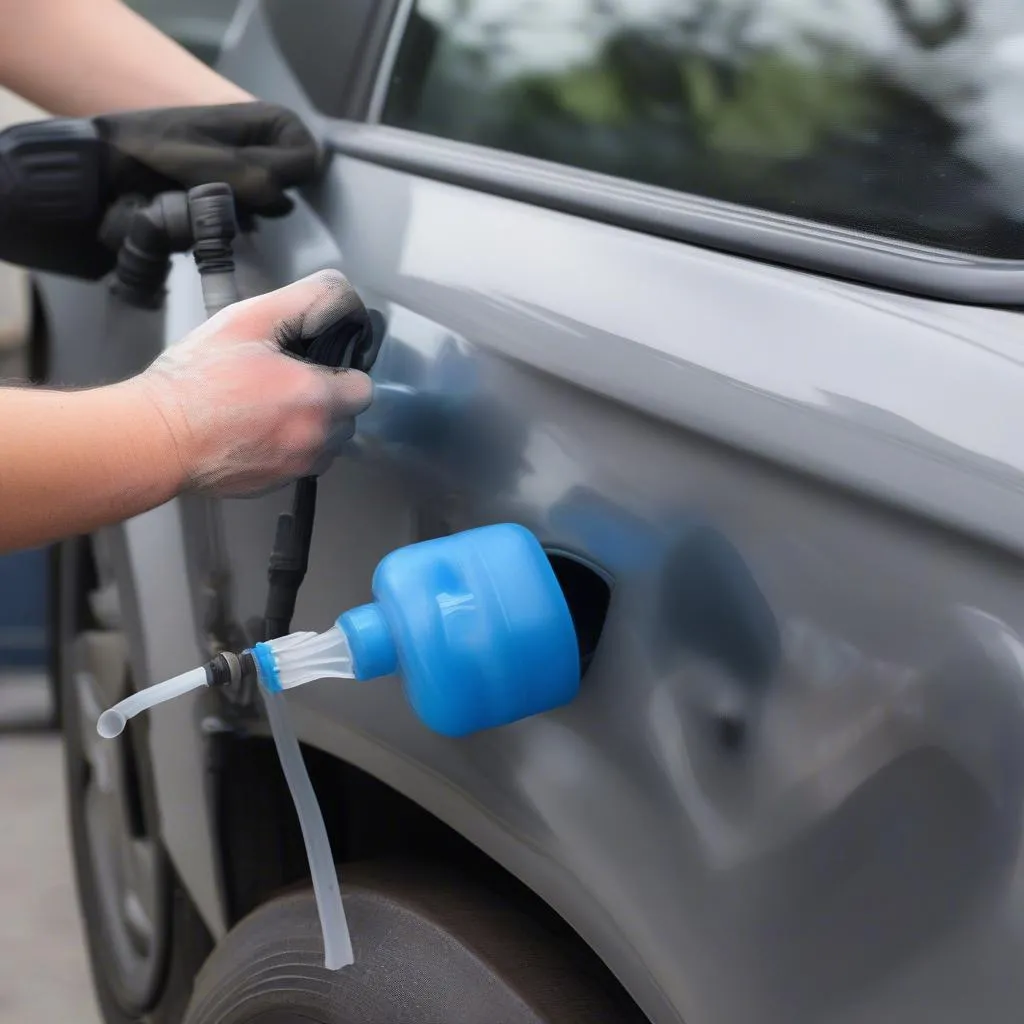The brake system warning light on your Ford Escape is a crucial safety feature that should never be ignored. When illuminated, it signals a potential issue within your braking system, requiring immediate attention. This article will guide you through understanding the common causes of the brake warning light on your Ford Escape, potential solutions, and when to seek professional help.
Common Causes of a Brake Warning Light
Several factors can trigger the brake system warning light on your Ford Escape. Here are some of the most frequent culprits:
-
Low Brake Fluid Level: This is the most common reason for the warning light to illuminate. Brake fluid is vital for transmitting the force you apply to the brake pedal to the wheels, enabling your vehicle to stop. A leak in the brake lines or worn-out brake pads can lead to a drop in brake fluid level.
-
Worn Brake Pads: Your Ford Escape’s brake pads are designed to wear down over time. When they become too thin, a sensor within the brake pad triggers the warning light on your dashboard, indicating it’s time for a replacement.
-
Faulty Brake Light Switch: The brake light switch is responsible for activating your brake lights when you press the pedal. A malfunctioning switch can disrupt the brake light circuit, potentially causing the warning light to illuminate.
-
ABS Issue: If your Ford Escape is equipped with an Anti-lock Braking System (ABS), a problem with this system can also trigger the warning light. This could be due to a faulty ABS sensor, control module, or wiring issue.
Troubleshooting the Brake System Warning Light
Before rushing to a mechanic, there are a few preliminary checks you can perform yourself:
-
Check Your Brake Fluid Level: Park your Ford Escape on a level surface and turn off the engine. Locate the brake fluid reservoir under the hood (refer to your owner’s manual for the exact location). The reservoir will have a “Min” and “Max” marking. If the fluid level is below the “Min” mark, it needs to be topped up. However, if you notice a significant drop in brake fluid level or need to refill it frequently, it indicates a leak that requires immediate professional attention.
-
Inspect Your Brake Lights: Have a friend or family member press the brake pedal while you check if all brake lights illuminate properly. If you notice any malfunctioning lights, it could indicate a problem with the brake light switch or wiring, requiring further inspection.
When to Seek Professional Help
While the checks mentioned above can help identify some basic issues, it’s crucial to remember that the brake system is critical for your safety. If the warning light persists or you suspect a more serious problem, it’s best to seek professional help immediately.
Driving with a faulty brake system can have serious consequences. Ignoring the warning light could lead to brake failure, putting you and others on the road at risk.
FAQs: Brake System Warning Light on Ford Escape
Q: Can I drive my Ford Escape with the brake warning light on?
A: It is not recommended. Driving with the brake warning light on can be dangerous. It’s crucial to identify and address the underlying issue as soon as possible.
Q: How much does it cost to fix a brake warning light issue on a Ford Escape?
A: The cost can vary widely depending on the underlying problem. A simple brake fluid top-up can be inexpensive, while a brake pad replacement or fixing an ABS issue can be more costly.
Q: How often should I check my Ford Escape’s brake fluid level?
A: It’s a good practice to check your brake fluid level at least once a month and always before embarking on a long drive.
Q: Can I add any brake fluid to my Ford Escape?
A: Always refer to your Ford Escape owner’s manual for the recommended type of brake fluid. Using the incorrect type can damage your braking system.
Q: Can a faulty parking brake trigger the brake warning light?
A: Yes, in some cases, a faulty parking brake or sensor can also trigger the brake warning light.
Conclusion
The brake system warning light on your Ford Escape is a crucial safety feature you should never ignore. Understanding its potential causes and knowing how to troubleshoot basic problems can save you time and money. However, if the warning light persists, seeking professional help immediately is essential to ensure your safety and that of others on the road. Remember, maintaining a well-functioning brake system is paramount for a safe driving experience in your Ford Escape.

